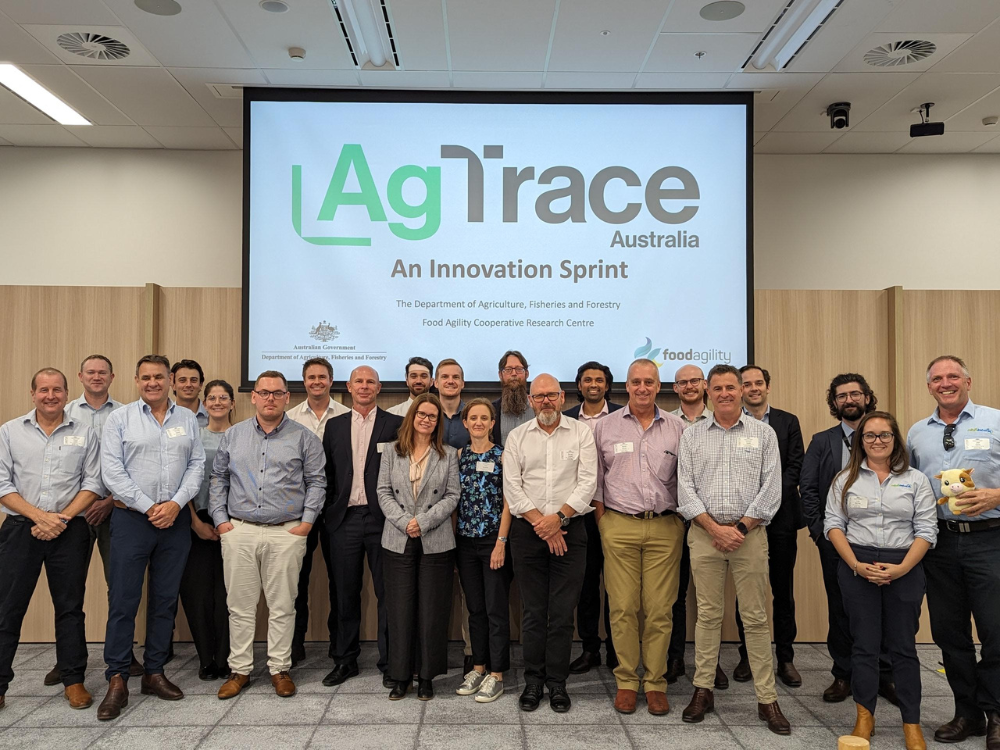AgTrace is improving traceability for Australia’s agriculture sector
First proof of concept from $5m AgTrace Australia project focuses on beef producers, with adaptability and scalability front-of-mind.
Australia’s reputation as a sustainable producer of agricultural products is well established. However, demonstrating sustainability credentials is becoming increasingly important for agricultural production and export, including market access.
New and emerging international requirements regarding land clearing and Environmental, Social, Governance (ESG) reporting will require increased transparency and Australian producers will need to prove their sustainability claims to assure key export markets.
The first Proof of Concept (PoC) for AgTrace Australia used land management in the red meat sector as a case study to demonstrate the art of the possible in digital and data enabled assurance for traceability.
Food Agility partnered with industry leaders to develop a protocol that would improve the accuracy, verifiability, and confidence of accrediting beef products that meet ESG reporting requirements.
The partners for PoC 1 included The Department of Agriculture, Fisheries and Forestry (DAFF), Australian Farm Institute, Cibo Labs, Go Source, GS1 Australia, Simon Winter Agricultural Consulting, Trust Provenance, and 2RogConsulting.
The Approach
The project team set about adding value to existing robust traceability systems and technology currently being used by beef producers across Australia. This approach focused on empowering these producers to have greater control of their data.
By aligning new and existing data with accepted industry standards, producers will be able to incorporate new requirements, commodities, or markets into existing systems.
It also underpins claims with the guarantee of a trusted source, and provides transparency and rigor to traceability, from farm to market.
The Outcome
AgTrace Australia PoC 1 developed The Australian Agricultural Traceability Protocol (AATP).
Effectively the digitisation of existing industry mechanisms, the AATP is designed to simplify existing processes to enable a ‘tell us once’ approach. It is an adaptable and re-usable mechanism which can stay abreast of the emerging ESG requirements of export markets.
The blueprint for the AATP is based on an open source internationally recognised framework, the European Union Transparency Protocol, with key features being that it is adaptable, scalable, cost effective, transparent, readily accessible, and permission based.
The partners demonstrated a hypothetical decentralised platform that allows farmers to upload their data and credentials even when they’re offline.
This reinforces robust mechanisms that support efficient and transparent traceability for markets and consumers to identify the producer, the origin of the product and other key attributes.
Food Agility CEO, Dr Mick Schaefer, said work would continue with DAFF and strategic partners to deliver a beta product in 2024.
“Effectively, consumers anywhere in the world will be able to scan a barcode, at home or at the point of sale, to see the environmental attributes associated with a specific cut of meat,” said Dr Schaefer.
What’s Next?
Visit AgTrace Australia and sign up for the newsletter to stay updated with project progress.
About AgTrace
AgTrace Australia is an initiative of Food Agility and is funded through a $5 million grant from the Department of Agriculture, Fisheries and Forestry.
Contact us via agtrace@foodagility.com
Image Caption: The AgTrace Australia: PoC #1 working group in Canberra.
Back: Andrew Grant (Trust Provenance), Harley Thomas (Trust Provenance), Molly Rhys-Jones (Food Agility), Mick Schaefer (Food Agility), Will Holden (2Rog), Thomas Townson (DAFF), Zachary Zeus (GoSource), Jasveer Singh (DAFF), Robbie Evans (DAFF), Joe Merrion (DAFF), Dayton Bird (DAFF), Philip Tickle (CIBO Labs)
Front: Professor David Lamb (Food Agility), Richard Norton (Food Agility), Ashley Harwood (GoSource), Peter Carter (GS1 Australia), Kate McCabe, Ailsa Kerswell (2Rog), Steve Capell (GoSource), Simon Winter (Simon Winter Agricultural Consulting), Richard Heath (Australian Farm Institute), Lisa Barrios (CIBO Labs)
Posted in News

